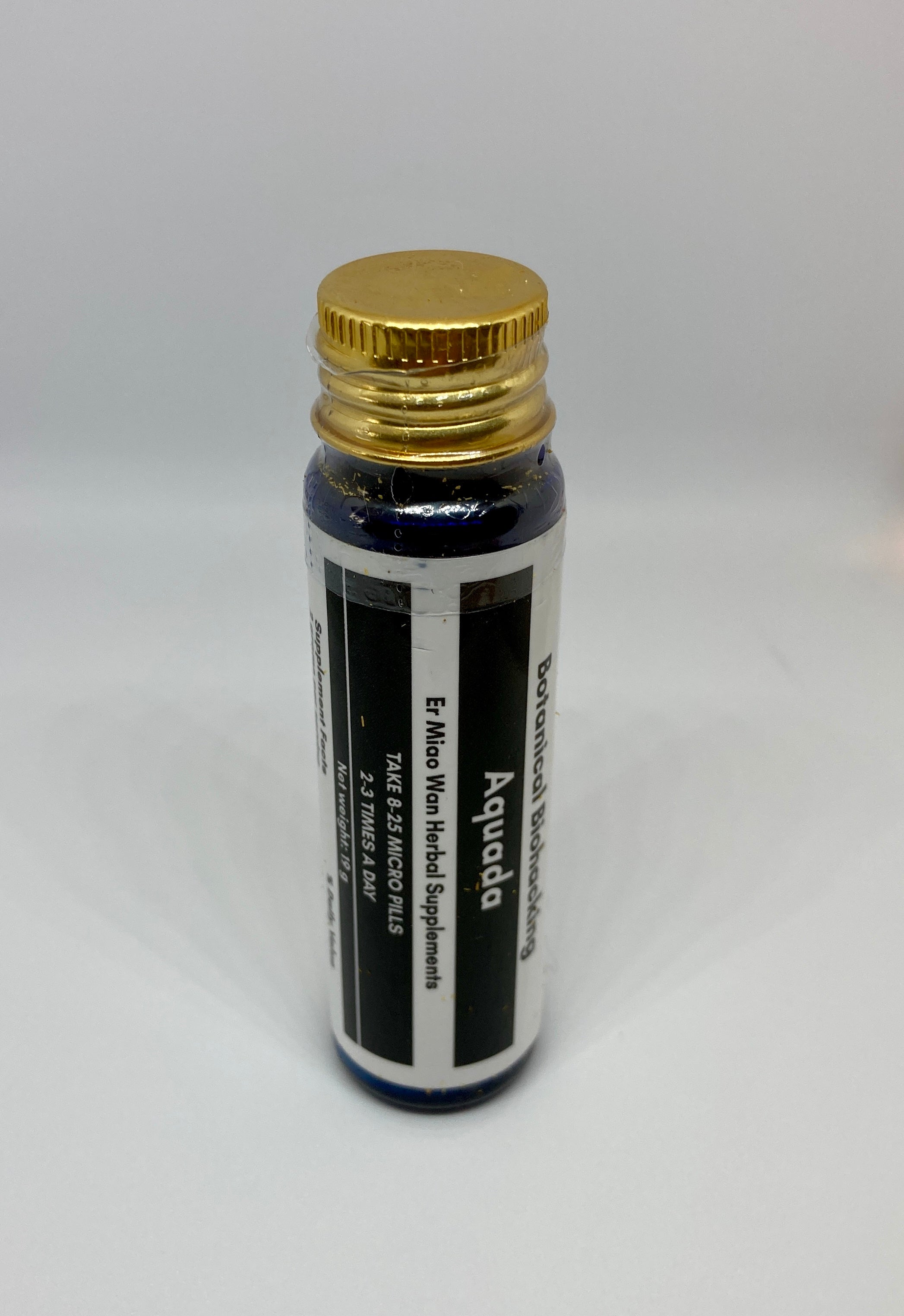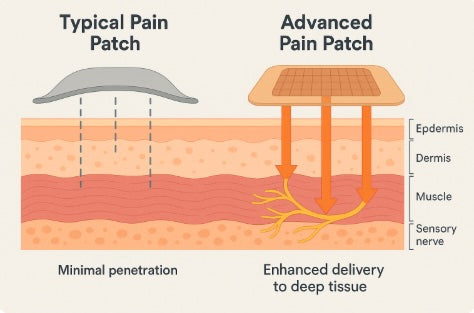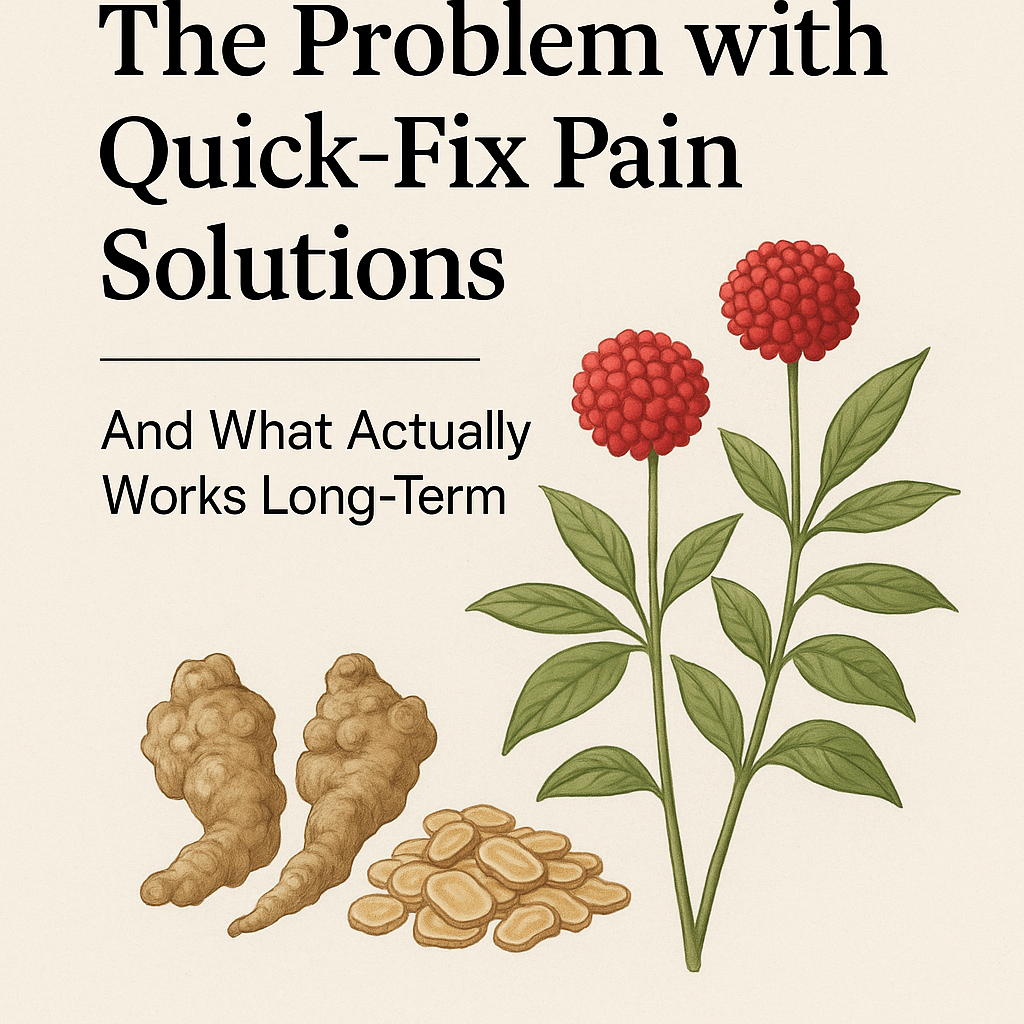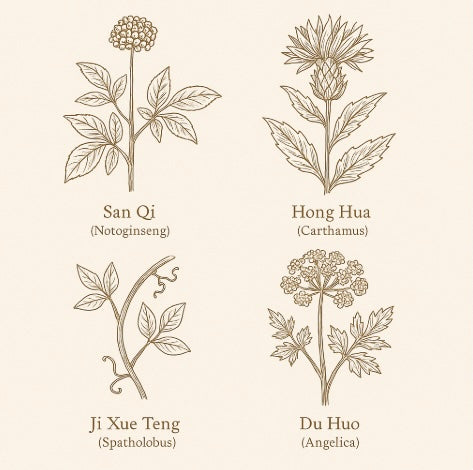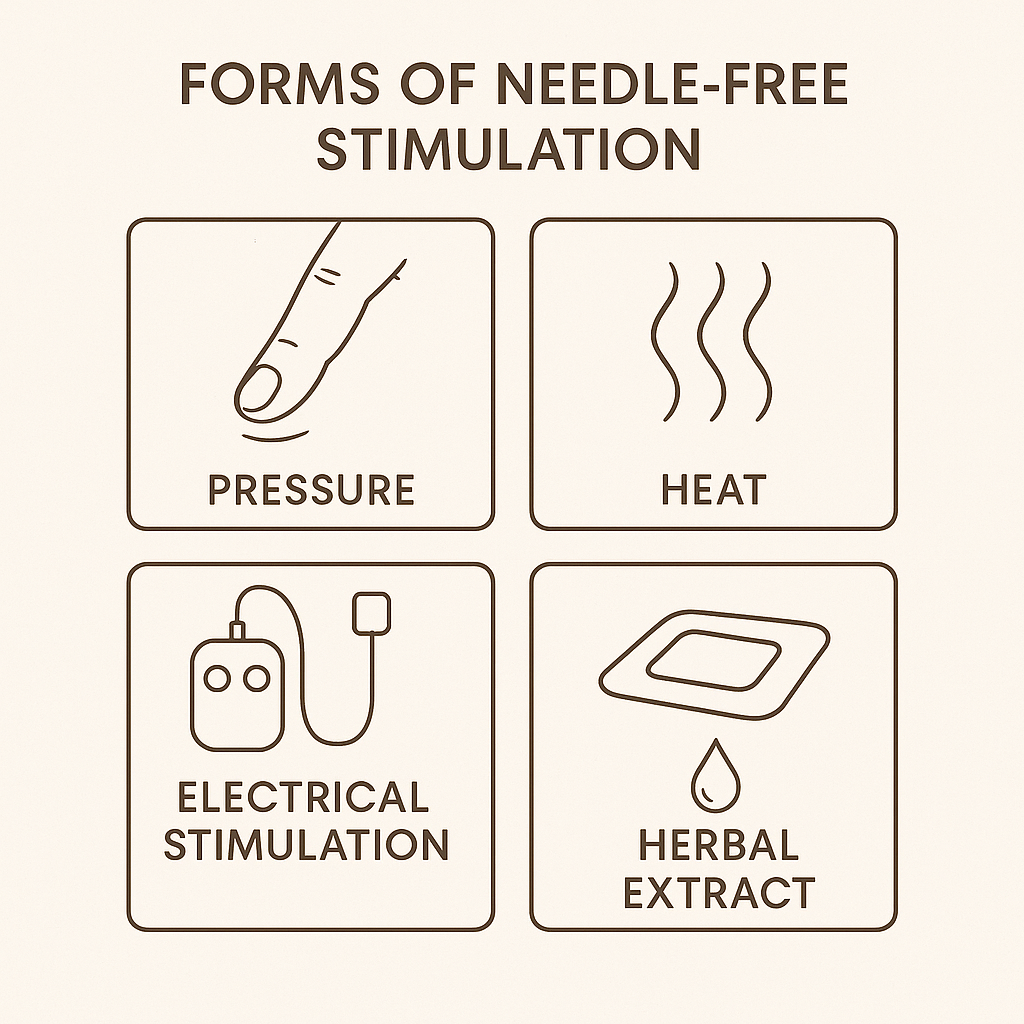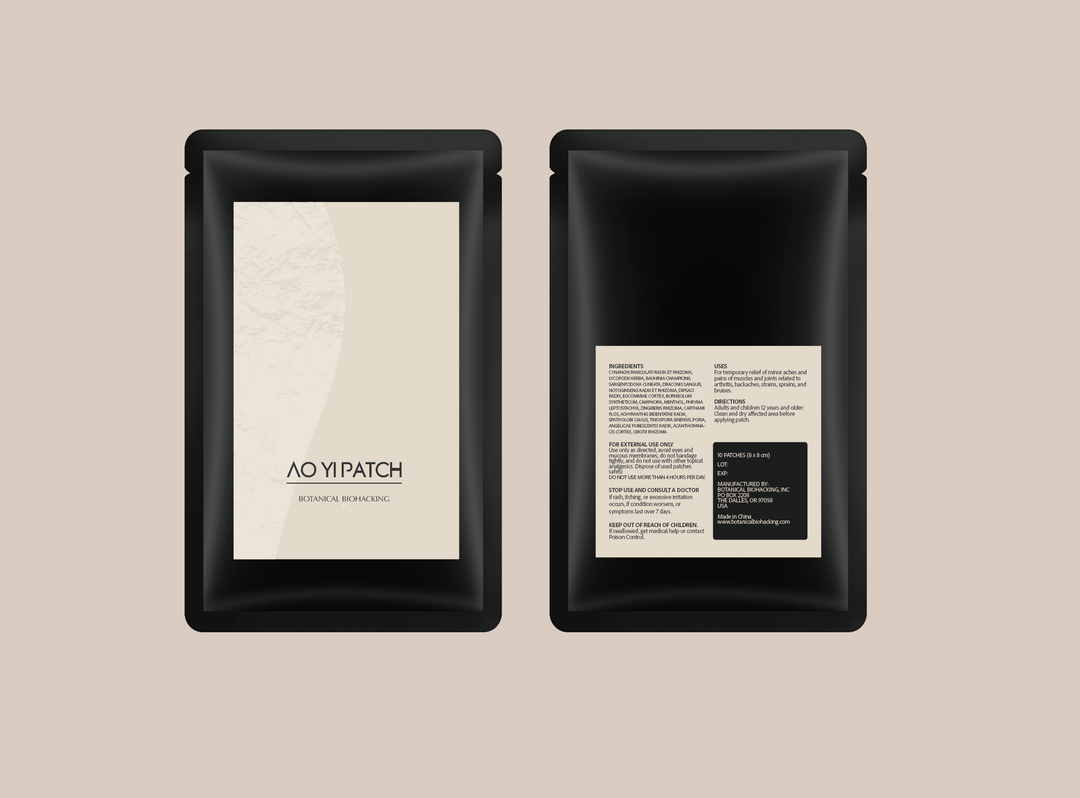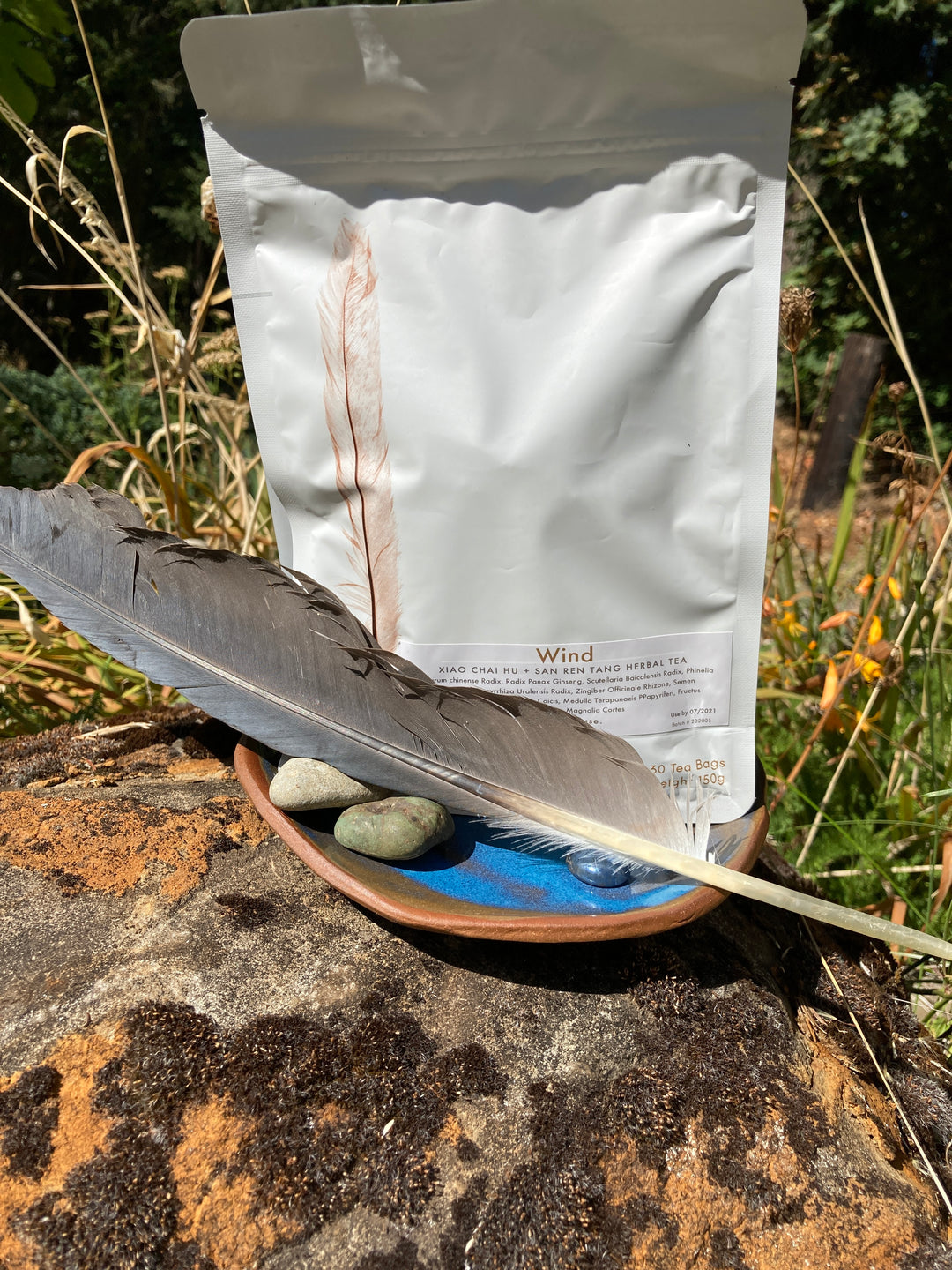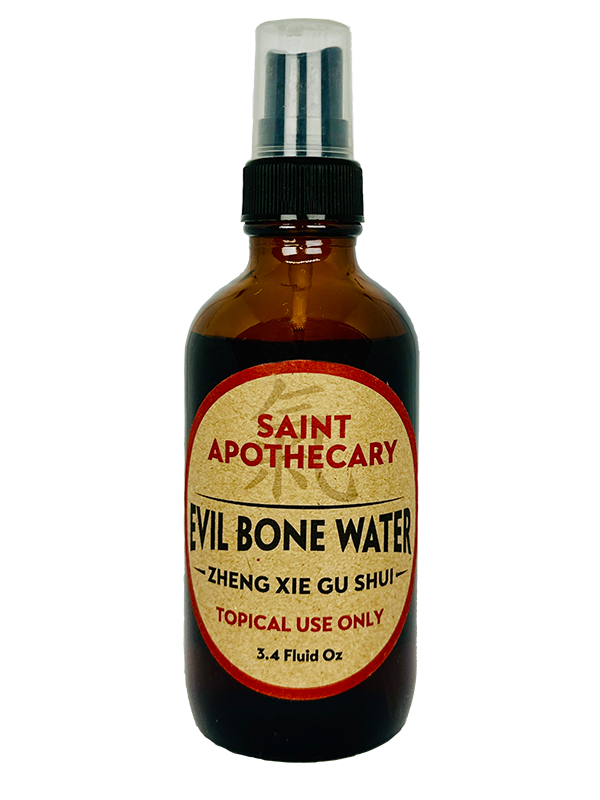Acupuncture without needles: the science of Pain Relief
Acupuncture without needles: the science of Pain Relief
What if I told you that your body has a built-in pain relief system that's been hiding in plain sight for your entire life?
Last week, we talked about why conventional pain patches often fall short of providing real relief. Today, we're diving into something that might sound almost too good to be true: how your body contains hundreds of specific points that, when properly stimulated, can reduce or eliminate pain naturally.
You've probably heard of acupuncture, but you might not realize that the same principles that make those tiny needles so effective can be harnessed without ever piercing your skin. Welcome to the fascinating world of meridians, acupuncture points, and your body's own healing highway system.
Your Body's Hidden Highway System
Imagine your body contains an intricate network of highways—invisible pathways that carry vital energy to every organ, muscle, and tissue. Traditional Chinese Medicine calls this network the "meridian system," and modern science is discovering that these ancient maps of the human body are remarkably accurate.
These meridians aren't just philosophical concepts. They correspond to measurable electrical pathways in your body. When researchers use sensitive instruments to measure electrical conductivity along the skin, they find that acupuncture points show distinctly different electrical properties than surrounding tissue.
What's even more fascinating is that these points often correspond to areas where nerves, blood vessels, and lymphatic vessels converge—creating natural "intersections" in your body's communication network.
The Science Behind the Ancient Art
For over 50 years, researchers have been trying to understand exactly how acupuncture works. What they've discovered is nothing short of remarkable:
Neurological Pathways: When specific points are stimulated, they trigger the release of natural pain-relieving chemicals in your brain, including endorphins and enkephalins. These are your body's own morphine-like substances, often more powerful than synthetic painkillers.
Gate Control Theory: Stimulating acupuncture points activates large nerve fibers that can "close the gate" on pain signals traveling to your brain. Think of it as your body's natural way of turning down the volume on pain.
Inflammatory Response: Research shows that acupuncture point stimulation can reduce inflammatory markers in the blood and tissues, addressing one of the root causes of chronic pain rather than just masking symptoms.
Improved Circulation: Studies using thermal imaging show that acupuncture increases blood flow to treated areas, bringing fresh oxygen and nutrients while helping remove metabolic waste that can contribute to pain and stiffness.
Why Needles Aren't Always Necessary
Here's where things get really interesting for people who want the benefits of acupuncture but aren't comfortable with needles: the stimulation itself matters more than the method of stimulation.
Traditional acupuncture uses needles to activate these points, but research shows that other forms of stimulation can be equally effective:
Pressure (Acupressure): Applying sustained pressure to acupuncture points can activate the same pathways as needles. This is why massage therapists often focus on specific "trigger points" that correspond to classical acupuncture locations.
Heat (Moxibustion): Traditional Chinese Medicine has long used controlled heat application to stimulate acupuncture points. Modern research confirms that thermal stimulation can activate the same beneficial responses.
Electrical Stimulation: Many modern acupuncturists now use small electrical impulses to enhance point activation. Studies show this can be as effective as traditional needle insertion.
Topical Stimulation: Perhaps most relevant for our discussion, properly formulated topical treatments can stimulate acupuncture points through sustained contact with active compounds that penetrate the skin and activate underlying pathways.
The Specific Points That Target Your Pain
Different types of pain correspond to different meridian pathways and acupuncture points. Understanding these relationships is key to effective natural pain management:
Back Pain: The Bladder meridian runs along the entire back and contains dozens of points that can influence spinal health and muscular tension. Points like "Kidney Shu" and "Large Intestine Shu" are particularly effective for lower back pain.
Shoulder and Neck Pain: The Gallbladder meridian contains powerful points for shoulder tension, while specific points along the Small Intestine meridian can address neck stiffness and pain.
Knee Pain: The Stomach meridian contains several points around the knee that can reduce inflammation and improve mobility. The famous "Zusanli" point, located just below the kneecap, is considered one of the most powerful points for overall vitality and pain relief.
Arthritis and Joint Pain: Multiple meridians converge around major joints, creating opportunities for targeted treatment. Points that "open the joints" and "dispel wind-dampness" (the traditional term for arthritis-like conditions) can provide remarkable relief.
The Synergistic Effect: Why Multiple Points Work Better
One of the key insights from Traditional Chinese Medicine is that acupuncture points work best in combination, not isolation. This is why traditional treatments often involve multiple points working together:
Local and Distal Points: Effective treatment typically combines points near the area of pain (local points) with points farther away that influence the same meridian (distal points). This creates a comprehensive treatment that addresses both symptoms and underlying imbalances.
Bilateral Treatment: Many conditions respond best when corresponding points on both sides of the body are treated simultaneously, creating balance and enhancing the overall effect.
Complementary Meridians: Different meridians influence each other in predictable ways. Experienced practitioners know which meridian combinations amplify healing effects for specific conditions.
Modern Research Validates Ancient Wisdom
The evidence supporting acupuncture for pain relief is now overwhelming. Major medical organizations, including the World Health Organization and the National Institutes of Health, recognize acupuncture as an effective treatment for numerous pain conditions.
Recent large-scale studies have shown acupuncture to be particularly effective for:
- Chronic low back pain (often more effective than conventional treatments)
- Osteoarthritis of the knee (significant pain reduction lasting months after treatment)
- Chronic headaches and migraines (both treatment and prevention)
- Fibromyalgia (improvement in pain, fatigue, and quality of life)
- Post-operative pain (reduced need for pharmaceutical pain medication)
What makes these results even more impressive is that they often involve long-lasting relief rather than temporary symptom suppression.
The Convenience Revolution: Accessing Acupuncture Benefits Without the Appointments
Traditional acupuncture requires trained practitioners, regular appointments, and significant time investment. But what if you could access these same healing pathways from the comfort of your own home?
This is where modern innovation meets ancient wisdom. Advanced topical treatments can now deliver sustained stimulation to acupuncture points using carefully selected herbal compounds that penetrate the skin and activate underlying pathways.
The key is understanding that effective acupuncture point stimulation requires:
- Precise location targeting: Knowing exactly where the most effective points are located
- Sustained activation: Maintaining stimulation for extended periods (traditional treatments often last 20-30 minutes)
- Appropriate intensity: Using compounds that can penetrate deeply enough to activate underlying pathways
- Synergistic combinations: Treating multiple related points simultaneously for maximum effect
What This Means for Your Pain Relief Journey
Understanding acupuncture points and meridians opens up entirely new possibilities for natural pain management. Instead of hoping that a one-size-fits-all patch might help, you can now approach pain relief with the precision and effectiveness that comes from thousands of years of refined knowledge.
The most sophisticated modern approaches combine this ancient wisdom with contemporary convenience, allowing you to:
- Target specific points related to your particular type of pain
- Maintain consistent stimulation throughout your day
- Avoid the time and expense of regular practitioner visits
- Experience cumulative benefits that build over time
Your Body's Healing Potential Awaits
Your body already contains everything it needs to heal itself and manage pain naturally. The meridian system and acupuncture points are like having a master key to unlock your body's built-in pharmacy of healing compounds and pain-relief mechanisms.
The question isn't whether these pathways exist—modern science has confirmed that they do. The question is whether you're ready to learn how to access them effectively.
Next week, we'll dive deep into the specific herbal compounds that can activate these pathways most effectively. You'll discover why certain traditional herbs work synergistically to not just stimulate acupuncture points, but to address the underlying imbalances that create chronic pain in the first place.
Ready to unlock your body's natural healing potential? The journey from understanding these principles to experiencing their benefits is shorter than you might think.
Have you ever tried acupuncture for pain relief? What was your experience? Or are you curious about needle-free ways to access these same benefits? Share your thoughts and questions in the comments below.
Next Week: "18 Powerful Herbs That Fight Pain Naturally (And How They Work Together)" - Discover the specific natural compounds that can activate your body's healing pathways and why traditional combinations are more effective than isolated ingredients.


